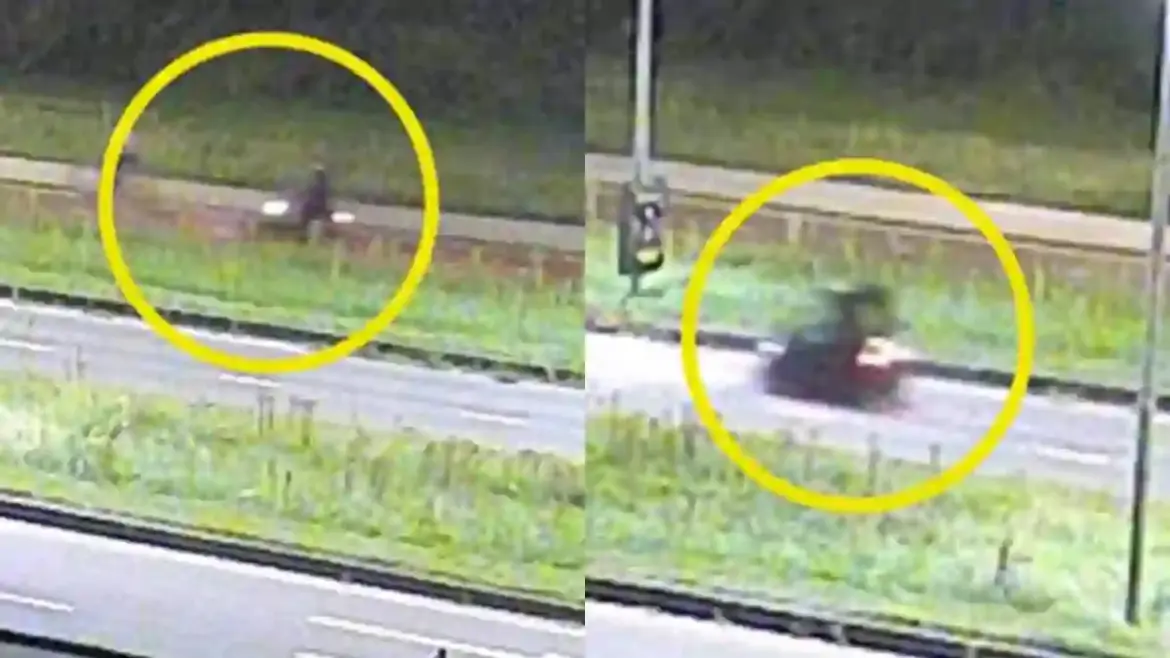A tragic crime has gripped the Netherlands, igniting widespread anger and calls for action.
Seventeen-year-old Lisa was fatally stabbed while she was attempting to call the police after noticing someone following her on her bike ride home.
Her death has not only left a community reeling but has also spurred a nationwide conversation about safety and justice for women.
The Final Ride Home
Lisa, returning from an evening out with friends, began her cycle home around 3:30 a.m. on an electric bike from central Amsterdam toward Abcoude.
Alarmed by someone following her, she dialed the emergency 112 number for help.
By the time police arrived around 4:15 a.m., she was tragically found dead near Duivendrecht, with stab wounds including injuries to her neck.
Suspect with a Violent History
The main suspect, a 22-year-old male asylum seeker, was staying at a reception site run by the Central Agency for the Reception of Asylum Seekers (COA) in Amsterdam.
Dutch media reported he had already been arrested for a rape in Amsterdam on August 15 and is allegedly linked to another assault on August 10, both within close proximity of Lisa’s murder scene.
Authorities are investigating possible connections between these violent incidents.
The Power of Words: A Poem Goes Viral
Lisa’s death has inspired a nationwide movement to reclaim safety on the streets.
Dutch actress and author Nienke Gravemade wrote a poem that resonated deeply with the public. In her viral Instagram post, she reflected on Lisa’s final moments: “The red bag.
I keep thinking about that red bag. How it dangled from her handlebars as she drove through the night.
A night that belonged to her too. I claim the night. I claim the streets.
I demand that the fear be lifted.” Alongside the post, she used the hashtag #rechtopdenacht, meaning “right to the night.”
Public Response and Protests
The country has seen a surge of activism in response to this and other recent attacks on women.
On Sunday, around 500 people joined a March Against Femicide in Rotterdam, organized by the Dutch feminist group Dolle Mina Rotterdam.
Protesters carried signs reading “She had dreams, no grave needed” and “Not all men, but always men.”
Weekly demonstrations have been ongoing since early August following the killings of two women in consecutive days.
Sporting Tributes and Mourning
Fans at an Ajax football match at the Johan Cruijff Arena paid silent tribute to Lisa, who was a supporter of the club.
Spectators held banners bearing her name, honoring her memory near the grounds where her body was discovered.
The gesture highlighted the deep impact her death has had across communities.
Political Fallout and Migration Debate
Lisa’s murder has intensified debates over asylum policies in the Netherlands.
Hard-right nationalist politicians, including Geert Wilders, leader of the Freedom Party (PVV), have called for closing the country to asylum seekers.
Wilders pulled his party out of the Conservative coalition, triggering a snap election on October 29, citing government weakness on criminal asylum seekers.
He also proposed a 10-point migration plan aimed at stricter border controls and deportations.
A Nation Grapples with Safety and Justice
As the country mourns Lisa, her death has amplified longstanding concerns about women’s safety and crime prevention.
From viral poetry and street protests to political upheaval, the tragedy has become a focal point for national discussion.
Many citizens are now demanding urgent action to prevent further attacks and ensure that public spaces feel safe for everyone.



